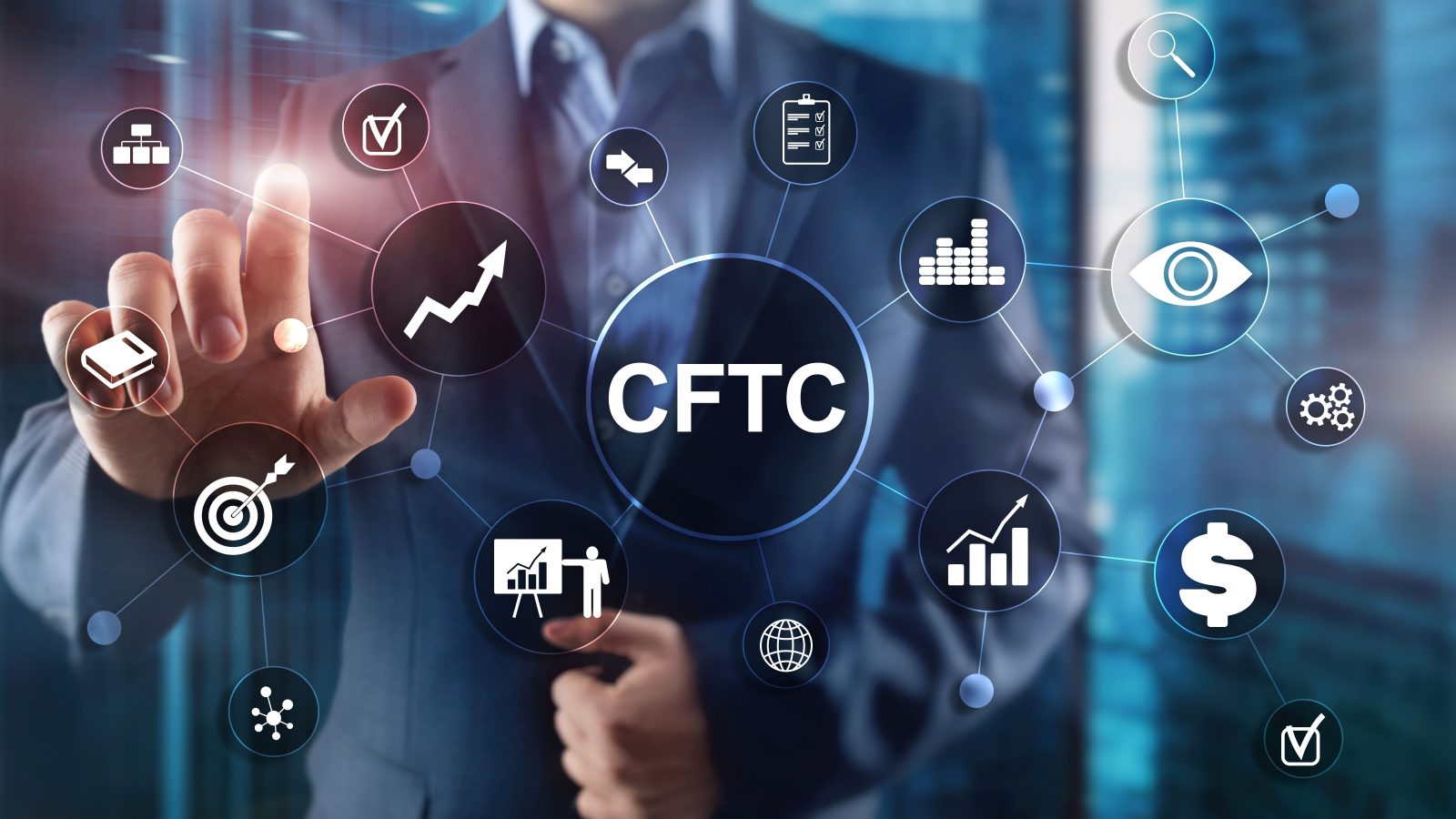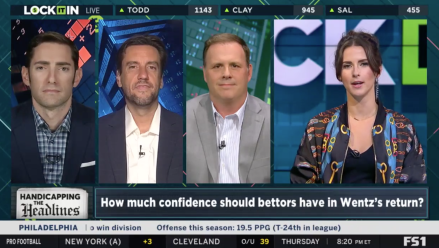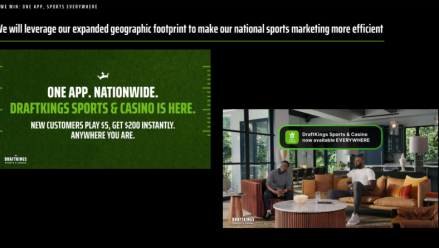A little under two weeks ago, FanDuel took the first true step by an established sportsbook into the prediction market world.
While some tentative exploration had already taken place, the betting market leader’s decision to partner with CME and prepare to offer event contracts on non-sporting events (at least for now) shows a sportsbook now taking real action in the sector.
Others had likely been waiting for someone else to make the first move, so more could follow.
But there are a lot of different ways to get involved in the prediction market space. Will all sportsbooks follow the same path?
FanDuel will form a joint venture with CME, which will register as a futures commission merchant (FCM). That joint venture will offer users access to contracts offered by CME, which is already a designated contract market (DCM). Is that the template for other sports betting operators looking to get involved?
Why not copy Kalshi?
Given Kalshi’s record so far, it may seem like an even more obvious step would simply be to follow its lead, and do the exact same thing. That would mean applying with the Commodity Futures Trading Commission (CFTC) to be a designated contract market (DCM).
But those who became aware of sports event contracts when Kalshi launched them this year may be unaware of just how arduous the task of getting there was.
In a recent post, Adhi Rajaprabhakaran — a former Kalshi employee and writer of the 50 Cent Dollars newsletter — estimated that if DraftKings were to get to work applying for a DCM license now, it wouldn’t have approval until 2027. That’s actually a speedy turnaround compared to some recently registered businesses: QCEX (now owned by Polymarket) and Railbird both applied in 2022, and weren’t approved until this year.
Given the speed at which gambling and prediction market landscapes have been changing, 18 months seems too long for an operator to wait to get involved in the market, especially considering that by 2029, a less prediction-market-friendly administration could be in the White House and appointing CFTC commissioners.
It’s likely to still be worth applying for DCM status, in case the benefits are clearer by the time 2027 rolls around.
But to most traditional sports betting businesses, being a DCM doesn’t seem as good an option as the FCM lane.
Exchange-style betting is already a low-margin business in terms of generating revenue from betting volume. Add in the costs of creating CFTC-compliant markets and building the tech side of the exchange, plus the timeline to get approved and the challenge of catching up to markets like Kalshi that have had a head start, it’s hardly easy money.
To consider it worthwhile, you’d likely have to be a true believer in the exchange model. There is at least one betting operator that fits that mold: Sporttrade.
The betting exchange is currently applying for a DCM license. It is presently available as a state-regulated traditional wagering platform in Arizona, Colorado, Iowa, New Jersey, and Virginia. But with the Wire Act preventing it from pooling liquidity between states, and high taxes making it harder to build a business on sharp odds, CFTC-registered status seems an obvious improvement over state-by-state licenses.
You don’t have to wait
As Polymarket proved, sitting and waiting for approval isn’t the only path to becoming a DCM. If you have the cash, you can simply buy an entity that has already been approved. There’s still a bit of waiting to get new rulebooks approved, but the timeline is nowhere near as long.
Polymarket paid $112 million to buy QCEX. That’s small change to multi-billion-dollar businesses like DraftKings or FanDuel’s parent company Flutter Entertainment, whose market cap routinely fluctuates by hundreds of millions of dollars per day.
But it’s not easy. For one thing, there are not so many candidates to buy. With QCEX off the market, attention may turn to Railbird, which got approval in June, and was linked to an acquisition by DraftKings in July, before reports this month that talks between the two had fallen through.
A market named Quanta Exchange received approval at the same time as Railbird, but has not yet launched, and offers little information about its plans. It was founded by two executives with experience in carbon allowance markets, originally under the name The Environmental Exchange, but it changed its name to the less-specific Quanta. Its owners may be considering whether its DCM status could be more valuable than their initial carbon market plan.
Other DCMs may be less obvious targets, as they’re part of a wider financial group like Interactive Brokers’ prediction market ForecastEx, or they’re an established exchange within a certain sector of the commodities market like agriculture or oil.
Clearing challenges
The other challenge for prospective DCMs is sorting out clearing, which doesn’t really have a parallel in the betting world.
Clearinghouses are institutions that quietly do the actual buying and selling behind every transaction on a CFTC-regulated exchange, and handle the paperwork and move the money that goes along with that. It doesn’t obviously seem like something that sports betting operators could pick up easily.
Clearinghouses too must be registered with the CFTC as a designated clearing organization (DCO), and some DCMs use internal clearinghouses while others rely on third parties. Kalshi initially used a third-party clearinghouse before switching to an in-house option named Kalshi Klear.
Rajaprabhakaran writes that “it seems harder to get a DCM and a DCO at the same time than individually.”
He predicts that companies looking to launch new exchanges will apply for DCM status and contract with Kalshi or Polymarket’s clearing businesses. Alternatively, sportsbooks could acquire an exchange that already has clearing abilities.
FCMs can be profit machines
But while operators may be able to get around some of the DCM hurdles, the fact is that FCM status offers some nice benefits.
Financially, being an FCM looks to be lucrative. Robinhood, which is an FCM offering access to Kalshi’s markets, is an example of that.
In their BLSH News newsletter, Sporttrade co-founders Alex Kane and David Huffman looked into the economics of Robinhood’s prediction operation. While the stock trading giant’s one-cent commission on every dollar traded may sound low-margin, Huffman and Kane called it “the highest margin in sports.”
The reason why it’s so profitable, they said, is primarily due to a lack of overhead costs. Robinhood doesn’t pay betting taxes, doesn’t offer substantial promos, and has minimal tech-related costs. Some costs, like market access agreements, are irrelevant in the prediction market world, and most of the things that are costly — such as building the technology to power the exchange itself — are dealt with by Kalshi.
For the equivalent of $100 of sportsbook handle, Huffman and Kane say, about $3.38 flows straight to Robinhood’s gross profit. For FanDuel, they point out, the figure is $2.55. Prediction markets don’t have a true equivalent to handle, as “volume” on those markets encompasses a wider range of activity, such as a trader cashing out of a bet. Therefore, Huffman and Kane use an estimate of the equivalent amount of activity on a sportsbook.
At the same time, FCM status offers a level of flexibility in terms of product, even if you don’t control the exchange itself. Rajaprabhakaran told InGame that an FCM is not necessarily just going to be the DCM partner’s offering with a sportsbook’s branding slapped on top.
“You get to build a Robinhood for prediction markets,” he said.
Like Robinhood did for stock trading, an FCM can focus on building a user experience designed for mass-market customers. And if they have sportsbook knowledge, that experience can be designed for those who like to bet.
That doesn’t mean an FCM should be expected to catch up to and overtake Kalshi in terms of its market share in the prediction market sector. But if it’s already too late to do so, and it may well be, it may still be a good way to avoid being left behind.
There’s definitely still things missed as an FCM. They can’t create their own markets — the DCM decides what gets listed. But a sportsbook of sufficient scale can likely convince the DCM it partners with to offer markets that it expects to get attention.
A larger challenge may be more complex products like parlays, especially same-game parlays. A DCM may be more reluctant to try solving the challenges that make it more difficult to offer parlays on an exchange.
But sportsbooks may be happy to keep those products within their traditional operations, where they routinely deliver sky-high margins that may not be replicated in an exchange structure.
FCMs must register with the National Futures Association (NFA), an industry self-regulatory body, after which they can get approval from the CFTC, but the whole process is much shorter than a DCM application. The NFA says approval may take “six weeks or longer,” but once that happens, CFTC approval typically happens within days. When FanDuel announced its partnership with CME, it said its FCM should go live “later this year.”
While DraftKings’ application with the NFA has been reported, there has not been a similar record of the FanDuel-CME application, with searches for FanDuel or senior executives turning up no relevant results in the NFA’s database. That doesn’t mean an application isn’t in the works, though, as the application could use a different business name and other key personnel.
The big topic: regulator reactions
But even if getting DCM status were not a challenge in either time or money, there still may be a bigger reason that established sportsbooks could prefer the FCM path.
The extent to which sportsbook operators get involved in the prediction market space is likely to depend heavily on the regulatory consequences for doing so.
Specifically, operators are trying to figure out whether they can get into the predictions game without putting their state-regulated sportsbooks at risk.
For large operators like FanDuel and DraftKings, sportsbook operations are still the golden goose. It would hardly seem worth it to jeopardize them in order to chase a market where Kalshi and Polymarket will already have head starts. Kalshi processes around $700 million of trades per month, InGame analysis shows.
On earnings calls, operators have noted potential backlash from regulators as a reason not to dive head-first into prediction markets. That backlash became more real this week, as the Ohio Casino Control Commission told sportsbooks their licenses could be at risk if they offer sports event contracts in the state.
That kind of regulatory reaction is likely to be a big part of why FanDuel looks to be taking a cautious approach as it steps into the market, initially offering event contracts on financial and economic indicators like quarterly GDP figures or the S&P 500 rather than sports.
And it may be the biggest reason why operators with the money to do so could be more reluctant to simply buy a DCM.
Why FCM may be the best pick
Kalshi’s lawyers have argued that the prediction market would be unable to cut off access to a single state, as this would violate the CFTC’s requirement that DCMs offer “impartial access” to their markets. That would mean a DCM would be unable to geofence Ohio to prevent consumers there from using it.
Kalshi, of course, does not want to cut off any states. A sportsbook-turned-DCM with incentives to offer event contracts in only part of the country may be able to find some detail of legislation or precedent that supports the case for state-by-state blocking.
Depending how regulators in legal states decide how to manage prediction markets, it could potentially be beneficial for DraftKings, FanDuel, or any operator to offer prediction markets everywhere that it won’t jeopardize their licenses, and block those where it would. One lesson of the rise of sports event contracts is that nobody should be too confident about what is and isn’t permitted.
But an easier path may involve just becoming an FCM that is not bound by the impartial access requirement that applies to DCMs.
In fact, Robinhood already blocks access to customers from Maryland, due to a cease-and-desist letter from the state and Kalshi’s failure to win an injunction to block enforcement of the cease-and-desist. It previously had similar geoblocks in place for Nevada and New Jersey, but reopened for business when it sued the two states last week, arguing that it should receive the same injunctions that Kalshi won to keep operating in the Silver and Garden States.
For sportsbooks that have the capital to simply acquire a DCM, regulatory timelines might not be what encourages operators to pass it up in favor of FCM status. Instead, the strongest benefit may be the ability to offer nothing at all in certain states.
Of course, that likely involves major tradeoffs in terms of future access to a state-regulated market. Legally, FanDuel’s new FCM should be allowed to offer sports event contracts in California but block them in Ohio, as long as CME doesn’t try offering the same contracts in Ohio. But doing so would surely anger California’s tribes — whose support is needed if the state is ever to legalize sports betting — to such an extent that the hopes of FanDuel launching a sportsbook in the largest state in the union could be gone forever. Would that be worth it?
But even blocking access in Ohio may not be enough.
“Even if a sports-gaming licensee in Ohio geofences or takes other actions to restrict Ohioans from accessing sporting event contracts in the prediction markets, that are otherwise offered to their patrons outside Ohio, this may not alleviate the suitability concern if the licensee associates, coordinates, or partners with a company offering or facilitating the offering of these sporting event contracts in Ohio,” the letter said.
An FCM has to partner with a DCM, and a DCM has to offer “impartial access,” so the state may say that every FCM offering sports event contracts is partnered with a company offering sports event contracts in Ohio.
The introducing broker path
There are other potential paths to market, though the appeal may be less clear.
DraftKings’ National Futures Application noted that the business was applying as both a “swaps merchant” (a status used by FCMs) and as an “introducing broker” (IB). The latter could be a way to play a part in the market at slightly more distance than an FCM.
But it’s hard to see the obvious benefits of chasing introducing broker status for a sportsbook. DraftKings CEO Jason Robins has talked about how the company is “exploring” the space, but was in “monitor mode” as of the company’s Q2 earnings call earlier this month, so the business may simply be keeping all options open.
There are no current IBs in the prediction market space, so it’s hard to be sure exactly what one would look like. In the traditional finance space, they tend to act as a concierge-like service for large buyers and sellers, helping them to navigate the complexity of CFTC markets.
In the traditional futures sector, the most commonly cited benefit of IB status is the fact that there’s no need to handle client funds, and the regulatory burdens that come with that. However, sportsbooks have plenty of experience with handling customer wallets and dealing with associated regulations, which can be particularly complex when you’re dealing with rules for 30-plus different states.
If customer funds aren’t an issue, then most of the regulatory flexibility offered by being an IB is also available as an FCM, and chances to launch a product that stands out are limited.
“IMHO, an IB won’t be a big player,” Rajaprabhakaran wrote last month. “IBs will lack strategic leverage and be relegated to being an existing DCM’s ‘skin.’”
And still requiring NFA membership, the timeline to launch doesn’t look much better than it does for an FCM.
Making markets
Alternatively, sportsbooks could have a role in the prediction market space doing what they do best: being sportsbooks.
In a prediction market, market makers are a crucial part of the ecosystem. Most users are reluctant to be the party who suggests odds for a trade — in case they’re wildly off base or circumstances change before they can cancel the order — and prefer to “take” offers made by someone else.
Market makers are those who are willing to put up a large amount of orders for normal prediction market users to “take.” In other words, setting odds and taking bets. Often, they do so on both sides of a trade.
And larger market makers can receive rebates or incentives to offer liquidity, which can help make the enterprise profitable.
Gambling industry advisory firm Regulus Partners pointed out in a recent analyst note that financial market making and bookmaking in sports betting are essentially the same thing.
“Organizations are adept at solving for this problem of liquidity; they are called market markers in the financial world, but they are called bookmakers in the sports world,” Regulus said.
In markets like the U.K. where betting exchanges are more common, sportsbooks often use exchanges to “lay” risk, placing bets on some of the same outcomes as their users to ensure that “customer-friendly sports results” don’t bite them too hard.
However, Regulus also noted that this may lead to trouble with the Wire Act in the U.S., even if courts ultimately determine that the 64-year-old law doesn’t apply to exchanges like Kalshi.
“It is conceivable to us that a P2P [peer-to-peer] exchange can operate within federal law as a financial infrastructure provider, but the liquidity providers cannot since they are more clearly engaged in betting,” it said.
Even without the legal concerns, established sportsbooks are likely to be reluctant to help prediction markets launch a better offering. More liquid markets could encourage bettors to shun the sportsbook in favor of exchanges.
At the same time, market making is probably not a hugely lucrative enterprise. On popular markets like NFL games, there’s enough bets to ensure that the difference between a “buy” and “sell” price on a trade will always be minimal, leaving no chance to make big margins by taking bets on both sides.
And the regulatory concerns still apply. If a sportsbook gets rebates or incentives from a prediction market that offers bets in all 50 states, as Kalshi does, regulators may see that partnership as grounds to take action. And without those incentives, market making may not be profitable at all.








